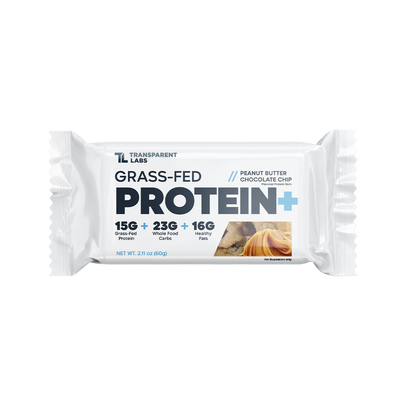Gamma-Aminobutyric Acid (GABA) Supplements: Are They Worth It?

A Hard Look at Gamma-Aminobutyric Acid (GABA) Supplements
Gamma-aminobutyric acid (GABA) is an amino acid that acts as the chief inhibitory neurotransmitter in the central nervous system (CNS). The receptors that bind to GABA are expressed ubiquitously by body tissues, so the effects of GABA supplements may be quite extensive. Yet, the putative benefits of GABA are often overstated, particularly concerning stress relief.
This article will bring you up to speed on the effects of GABA administration in humans and how GABA may reduce anxiety, fight stress, improve sleep quality, and support mood. You'll also learn about factors that may impact the use of GABA as a supplement.
What Is Gamma-Aminobutyric Acid (GABA)?
Gamma-aminobutyric acid (GABA) is a neurotransmitter, which is to say it's a chemical messenger of the nervous system. GABA is the predominant inhibitory neurotransmitter in the vertebrate central nervous system and the peripheral nervous system of various invertebrates; it's also an essential signaling molecule in plants. As such, GABA is a central regulator of nervous and sensory activity in myriad organisms [1].
In humans, GABA is produced via the conversion of its molecular counterpart glutamate (not to be confused with L-glutamine), the primary excitatory neurotransmitter [2]. GABA may be recycled back to glutamate via the tricarboxylic acid cycle.
Stress and anxiety tend to "excite" the nervous system and cause heart rate and blood pressure to increase, whereas GABA does the opposite. The inhibitory nature of GABA engenders a "calming" effect by preventing further neuronal action potentials from firing. Hence, alcoholic beverages are popular for unwinding as ethanol enhances GABAergic function [3].
Curiously, GABA appears to have obligate stimulating roles in young individuals [4]. It's not well-understood why GABA transiently shifts from an excitatory to an inhibitory neurotransmitter in the developing nervous system.
How Does GABA Work?
The GABAergic system modulates numerous psychological and physiological functions, notably immune response, mood, heart rate variability, blood pressure, and stress adaptation. Two subtypes of GABA receptors mediate the effects of GABA: GABA-A and GABA-B receptors.
GABA-A receptors generally produce feelings of sedation, while GABA-B receptors are responsible for feelings of relaxation (and, in some instances, euphoria). For example, benzodiazepines like Xanax (alprazolam), commonly prescribed for anxiety, have a strong affinity for GABA-A receptors. The illicit nootropic phenibut targets GABA-B receptors, so it's highly addictive and frequently abused.

In addition, gamma-aminobutyric acid (GABA) enhances the metabolism of serotonin to N-acetylserotonin — the precursor to melatonin, a hormone that primarily controls sleep patterns [5]. This mechanism likely explains how GABA supplements can play a therapeutic role in treating anxiety and sleep disorders.
On top of that, GABA has actions beyond the central nervous system. For example, it is the primary amino acid responsible for muscle tone. Muscle tone is essentially the state of constant partial contraction that your muscles exhibit in preparation for any sudden movements or change in position that you make. Inconsistencies in muscle tone, such as spasticity or stiffness, increased tendon reflexes, and paralysis, are the underlying cause of conditions like cerebral palsy.
As you can see, gamma-aminobutyric acid is crucial for many body functions, not just mood and cognition.
Benefits of GABA Supplements
At this time, over-the-counter GABA supplements have a wide range of plausible benefits, but more research is necessary to back them. Oral GABA supplements are not well absorbed across the blood-brain barrier, but they might have therapeutic psychoactive effects mediated by peripheral mechanisms [6].
As we touched on earlier, GABA enhances the metabolism of serotonin; the former and the latter are crucial neurotransmitters for managing anxiety. Perturbation of GABA or serotonin transmission is associated with depression and anxiety disorders [7, 8].
Most nootropic users find that the mood-enhancing properties of a GABA supplement make it worthwhile, even if anxiety is not an issue. There is also intriguing evidence that GABA may increase growth hormone (GH) secretion when used in larger doses, but translating such findings to real-world outcomes is imprudent until more data is available [9, 10].
GH is a vital peptide hormone that promotes lean tissue growth and repair and mobilizes fat tissue to be burned for energy. Hence, the putative growth hormone-boosting properties of gamma-aminobutyric acid may appeal to gym-goers and bodybuilders.
Another purported benefit of GABA supplements is improving sleep quality and duration. However, a recent meta-analysis concludes that evidence for such claims remains very limited [11].
Arguably the most well-established effect of GABA as a supplement is reducing blood pressure. A handful of human studies have shown that GABA can lower systolic and diastolic blood pressure levels by as much as 10% [12, 13, 14]. While these findings are encouraging, individuals on blood pressure medication should be cautious about taking a supplement containing gamma-aminobutyric acid as it could lead to hypotension.
Overall, there is limited research supporting the beneficial effects of gamma-aminobutyric acid as a supplement.
Does GABA Reduce Anxiety and Stress?

The connection between low levels of GABA and persistent anxiety is evident. Thus, GABA supplements may be an effective over-the-counter option to alleviate anxiety and stress, but human studies of this effect are scarce [15].
One study of university students that drank GABA-enriched oolong tea found a significant stress-reducing effect [16]. Yet, it's uncertain if this result was due to GABA or other micronutrients found in oolong tea.
Until more human studies are available, GABA supplements remain experimental for attenuating stress and anxiety.
Recommended Forms And Dosages
The amount of GABA you should use will depend on the desired effects. Here are some guidelines to follow:
For Reducing Anxiety — 500 mg to 750 mg taken as needed (anxiolytic effects appear to peak around one hour after ingestion)
To Improve Sleep: 750 mg to 1000 mg taken one hour before bed
For Increasing Growth Hormone Output: 1000 mg to 3000 mg split into several doses throughout the day (note that taking large doses of GABA at once are likely to cause drowsiness)
To Lower Blood Pressure: 100 mg to 400 mg per day before meals
Potential Side Effects of GABA Supplements
GABA tends to be a well-tolerated and safe over-the-counter supplement; even very large doses of GABA rarely lead to adverse effects [17]. Nevertheless, transient side effects of GABA use may include:
- Nausea
- Burning sensation in the throat
- Euphoria
- Hunger pangs
- Gastrointestinal distress
- Lethargy
- Drowsiness
These side effects will be relatively uncommon unless you consume more than 15 grams of GABA per day. If you begin to feel undesirable side effects after taking GABA, stop further use until they subside. You can then try using a lower dose and see how you respond.
Is a GABA Supplement Worth It?
A GABA supplement may confer various therapeutic effects, particularly for individuals who struggle with poor sleep and chronic anxiety. Since GABA does not readily cross the blood-brain barrier after oral intake, supplements containing gamma-aminobutyric acid likely work through a peripheral mechanism that alters central nervous function.
The blood-pressure-lowering effects of GABA have been substantiated in a few double-blind, placebo-controlled studies of hypertensive patients. Other surmised benefits of GABA remain to be rigorously tested in human subjects.
If you find that GABA supplementation is not effective for you, hop on over to our L-Theanine Guide for an alternative.









